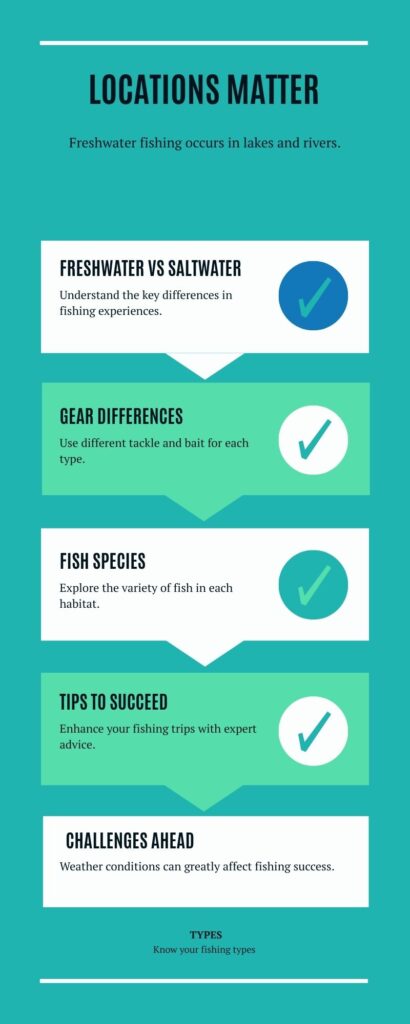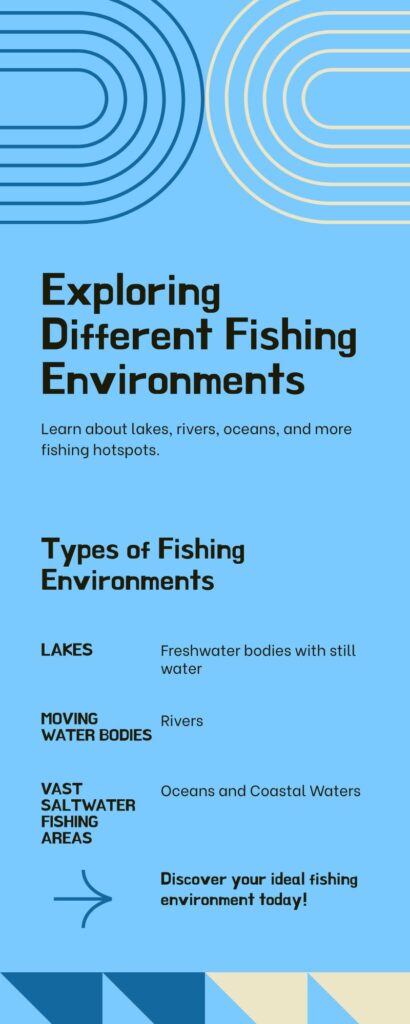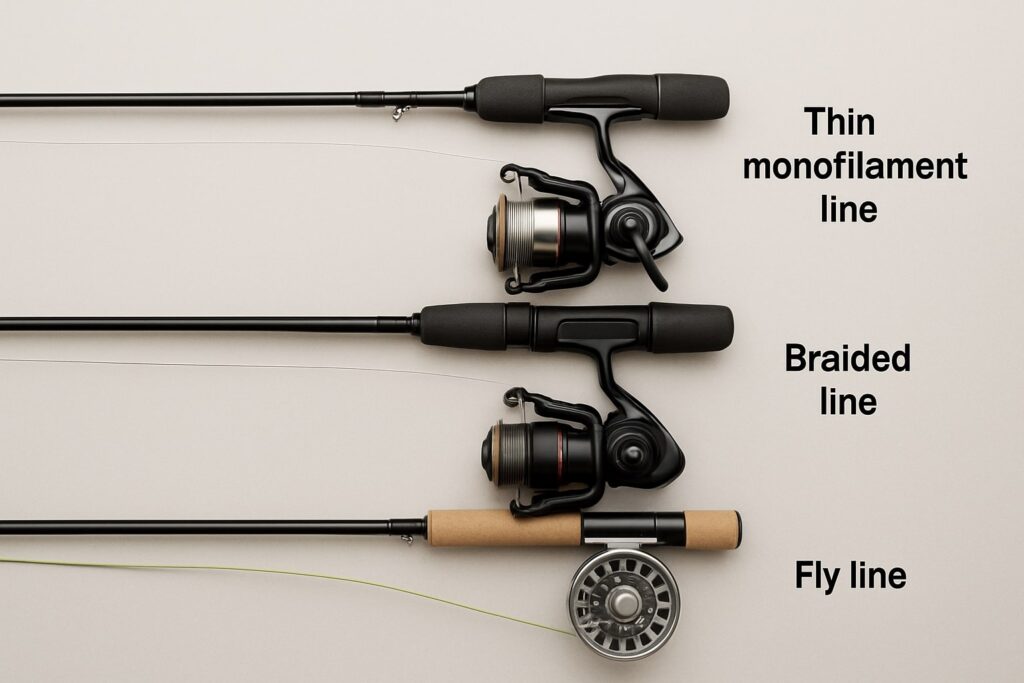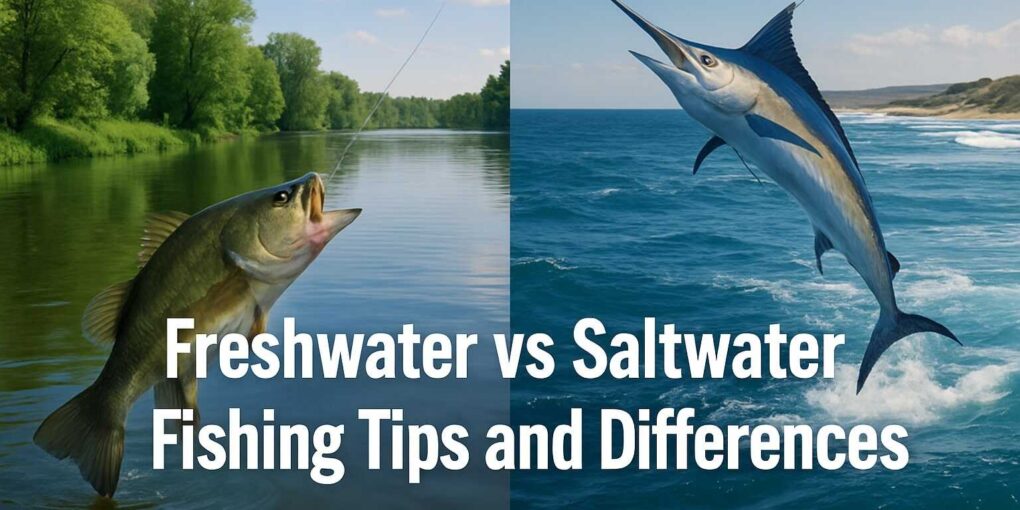Freshwater vs. Saltwater Fishing: Key Differences, Tips & How to Choose
If you like fishing but aren’t sure where to start, this guide will help. There are two main types of fishing: freshwater fishing and saltwater fishing. Some people enjoy sitting by a quiet lake, while others like the challenge of fishing in the ocean. Each type gives a different feel. One is calm and easy to reach, the other is big and full of wild fish.
This article explains everything you need to know. You’ll learn what makes these types of fishing different, how much they cost, what gear you’ll need, and how to pick the right one for you. Let’s start with the basics.
What is the Fundamental Difference Between Freshwater and Saltwater Fishing?

The main difference is where you fish. Freshwater fishing happens in lakes, rivers, and ponds, while saltwater fishing occurs in the ocean. The gear, fish, and overall experience are different for each type.
Defining Freshwater Fishing
Freshwater fishing happens in bodies of water like lakes, rivers, ponds, and streams with very low salt levels. These places are usually more accessible and can be found in almost every town or city.
Most freshwater fishing trips are simple and peaceful. You don’t need a boat or fancy gear to catch fish like bass, catfish, or trout. It’s perfect for beginners, kids, or those who want a quiet escape into nature.
Defining Saltwater Fishing
Saltwater fishing takes place in oceans and seas. It can happen right off the coast (inshore) or miles out in the deep blue (offshore or deep-sea fishing). Saltwater environments offer more variety in terms of species of fish, gear, and techniques.
From fighting red drum on the grass flats to reeling in tuna in the Gulf of Mexico, saltwater fishing offers intense action and adventure. However, it also requires stronger gear due to the harsh conditions caused by sodium chloride (salt).
Fishing Environments

Fishing environments shape everything from the fish you catch to your gear. Let’s look at how freshwater and saltwater locations affect your fishing trip.
Freshwater Ecosystems
Freshwater spots are calm, easy to reach, and full of smaller fish. You’ll often fish near the shore or from a small boat in lakes, rivers, or ponds.
Fishing in Lakes and Ponds
Fishing in lakes and ponds is calm and relaxing. You can sit on the shore or hop in a small fishing boat. Fluke-style baits, worms, and spinners work great here. You’ll often catch largemouth bass, bluegill, or crappie.
These still waters are perfect for flipping, pitching, topwater casting, or drifting. Whether you fish from the bank or a boat, you’ll enjoy the natural surroundings and slower pace.
Techniques for Rivers and Streams
Rivers and streams bring more movement. You’ll use different angling techniques like drift fishing or trout trolling. The current keeps fish active, making them more likely to bite.
Fish like trout, salmon, and smallmouth bass thrive in these environments. Areas like the Indian River Lagoon or Wildlife Management Area are top spots for freshwater fishers.
Saltwater Ecosystems
Saltwater fishing areas include beaches, bays, and deep ocean waters. These places are home to bigger fish and need stronger gear for rougher conditions.
Inshore and Coastal Fishing
Inshore saltwater fishing is where beginners often start. You’ll fish close to the shore, in bays, estuaries, or marsh grass. You can use light spinning rods to catch strong fighters like red snapper, sea trout, and snook.
It’s ideal for sight fishing and offers a mix of challenge and fun without needing a big boat or expensive saltwater rods.
Offshore and Deep-Sea Fishing
Now, this is where things get wild. Offshore fishing means heading miles away from the coast. You’ll need a fishing charter and big equipment. It’s all about catching giants like tuna, marlin, and sailfish.
Expect to use heavy-duty gear like saltwater baitcasters, Shimano saltwater reels, and thick saltwater fishing lines. It’s thrilling, physical, and unforgettable.
Differences in Equipment and Costs
Rods, Reels, and Line: A Side-by-Side Comparison

The gear used in each environment is tailored to the water type and fish size. Freshwater rods and reels are lighter and cheaper. They’re great for small to medium-sized fish.
On the other hand, saltwater rods are stronger and made to resist sodium chloride corrosion. You’ll find aluminum oxide guides, sealed bearings, and durable reel seats on saltwater gear.
The American Sportfishing Association reports that spending on saltwater fishing gear is over $3 billion each year. This spending helps the U.S. outdoor economy.
Does Saltwater Corrode Freshwater Gear?
Yes, and fast. Using freshwater gear in saltwater can ruin it. The salt eats away at the parts and rusts the reel. If you plan to fish in the ocean, always choose saltwater spinning reels or saltwater rod and reel combos.
If you use freshwater gear in saltwater by mistake, rinse all gear well with freshwater.
Studies show metals in freshwater reels start to rust within hours in saltwater if you do not rinse them with clean water.
The Cost of Entry: Freshwater vs. Saltwater
Comparing the Overall Cost of Equipment
Freshwater fishing gear is budget-friendly. You can get started for under \$100. A simple baitcasting rod or spinning rod is often enough.
Saltwater fishing gear, especially for offshore trips, can get pricey. A good saltwater fishing rod setup may cost a few hundred dollars. Add braided lines, fluorocarbon leaders, and other gear; your costs increase quickly.
A local study in Fort Lauderdale shows offshore charter trips cost about $1,200 for a full day. These trips support many small business owners and boat captains.
Charter Trip Durations and Pricing
Fishing charters are shared for saltwater trips.
- Inshore charters can range from $300–$700 for a half-day.
- Deep-sea fishing? Expect $1,000 or more for a full day.
Freshwater trips usually don’t need a guide or captain, making them way more affordable.
The Fish You’ll Catch: Species, Size, and Taste
Common Freshwater Species
Freshwater gives you fish like largemouth bass, crappie, trout, catfish, and perch. These are smaller, usually under 10 lbs., but perfect for learning new techniques.
Many fishers enjoy bass fishing for the thrill, especially in competitions. Locations like Pybus Point Lodge are great places for lake trout or salmon.
Common Saltwater Species
The ocean is home to giants. Saltwater fishing brings endless variety, from red drum and sea trout to tuna and mahi-mahi.
You’ll also encounter seasonal favorites like snapper and grouper. Want to challenge yourself? Head out to the Inside Passage or Fort Lauderdale Sportfishing.
Does Saltwater or Freshwater Fish Taste Better?
This one’s subjective. Saltwater fish like snapper and halibut tend to have a stronger flavor, while freshwater fish like trout or catfish are milder.
It depends on your taste buds. Some say freshwater fish vs saltwater fish taste is about texture and cooking style.
Are Saltwater Fish Healthier Than Freshwater Fish?
Generally, both are good for you. However, the health benefits of freshwater fish vs. saltwater fish can differ. Saltwater fish usually have more omega-3 fatty acids. Freshwater fish may have less mercury.
Mercury levels vary, so checking local advisories before eating your catch is smart.
Skill, Experience, and Physical Demands
Is Saltwater Fishing More Challenging?
Yes, it can be. You’re battling bigger fish, rougher conditions, and unpredictable waters. It’s like the difference between a walk in the park and a mountain hike.
That said, it’s also more exciting and rewarding. You’ll need to learn knot tying, casting techniques, and handling big fish.
The Physical Demands of Offshore Fishing
Offshore fishing is intense. You’re out on open water for hours, sometimes in harsh weather. Pulling in a 100-lb tuna isn’t easy.
You need strength, endurance, and sometimes sea legs. Always wear life jackets, and listen to your captain Donovan, or guide.
U.S. Coast Guard data shows that most fishing accidents happen offshore. Changing weather and waves cause this. Safety training is more important for saltwater trips.
Do I Need Experience for Saltwater Fishing?
Not always. Many fishing charters are beginner-friendly. Your charter boat captain will guide you, set the lines, and help you catch fish. If you’re new, inshore trips are a good start.
Practice helps. Try freshwater first, then move to saltwater as your skills grow.
The Overall Fishing Experience
The Tranquility of Freshwater vs. the Thrill of Saltwater
Freshwater is peaceful, slow, and often surrounded by trees and birdsong. It’s great for relaxing and spending quiet time with friends or family.
Saltwater fishing is full of action and adventure. It’s loud, exciting, and full of surprises. The ocean challenges you — and rewards you.
Safety and Challenges in Each Environment
Freshwater is safer for beginners. Fewer waves, fewer regulations, and more control. Always check the weather report before any trip.
Saltwater demands more prep. You’ll need polarized fishing sunglasses, UV protection, and maybe even 580® glass lenses to handle glare. Safety gear like radios and flares is a must offshore.
The Role of a Charter Boat Captain
Your charter boat captain is your guide, coach, and lifesaver. They know the best fishing spots, keep you safe, and make sure you have fun.
Captains like Max Moneuse turn a trip into a true fishing adventure. They also handle the gear and even clean your catch!
Making the Right Choice for You
How to Decide Between Freshwater and Saltwater Fishing
Ask yourself:
- What’s my budget?
- Do I want peace or adventure?
- What kind of fish do I want to catch?
- Do I have access to the ocean or just lakes nearby?
If you’re after giant fish and excitement, go saltwater. If you want a chill experience close to home, choose freshwater. Or, do both!
Conclusion
Both freshwater and saltwater fishing offer something special. Whether you prefer a calm lake or a wild ocean depends on your style, budget, and goals. Try both, you might just fall in love with the challenge of the sea or the calm of a quiet river. Either way, the water’s waiting.
FAQ
Can you use the same rod for freshwater and saltwater?
Technically, yes. But saltwater vs freshwater fishing rod design is different. Saltwater gear resists corrosion. Rinse the gear if used across environments.
What are the pros and cons of each type of fishing?
Freshwater: cheaper, easier access, smaller fish. Saltwater: exciting, big fish, expensive, needs more gear.
What is the best bait for each environment?
Freshwater: worms, minnows, plastic lures. Saltwater: shrimp, squid, cut bait, topwater baits.
Can I use a kayak for both types of fishing?
Yes, but it should be built for both. Coastal kayaks work better for marsh fishing or inshore saltwater fishing.
Can you use a saltwater rod in freshwater?
Yes, but it might feel heavy or overbuilt. Always rinse it after use.
Can I use a freshwater reel in saltwater?
You can, but it may rust quickly. Use saltwater reels like Shimano saltwater reels for better durability.
Is there a difference in fishing license costs?
Yes. Saltwater vs freshwater fishing license costs vary by state. Check your state or Non-Resident Florida fishing license online.
What about combo licenses?
Many states offer hunting and Fishing Combination Licenses and Hard Cards for easier access.
Are there tank differences between freshwater and saltwater fish?
Saltwater vs freshwater fish tank setups differ in cost, maintenance, and water conditions.
Which fishing rod is best for both?
Look for the best fishing rod for salt and freshwater, like the TFO Professional Series.
What’s the best fishing line for saltwater?
Use braided lines or saltwater fly line with strong fluorocarbon leaders.
Do I need a special license for lobster or halibut?
Yes, you may need lobster permits or to join a halibut fishing program.
Are freshwater or saltwater fish higher in mercury?
EPA research shows that large saltwater fish like king mackerel, shark, and swordfish often contain more mercury than most freshwater fish. However, freshwater fish near polluted rivers or lakes may also be at risk. Always check local health advisories before eating wild-caught fish.
Which mirror lens is best for ocean fishing?
Blue mirror and green mirror lenses offer the best visibility in bright conditions.

